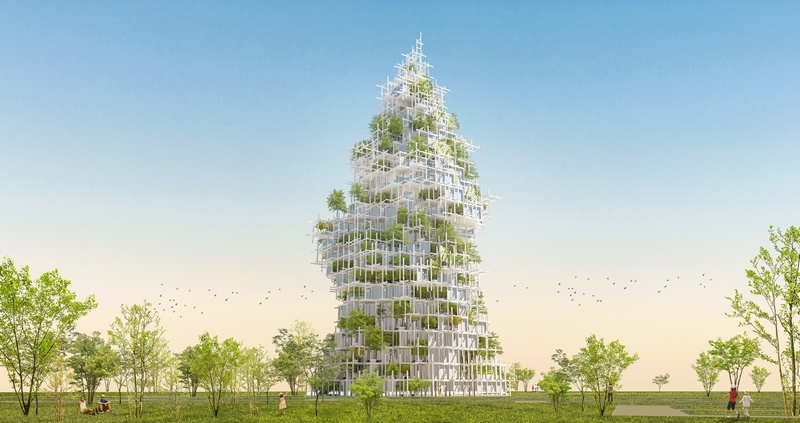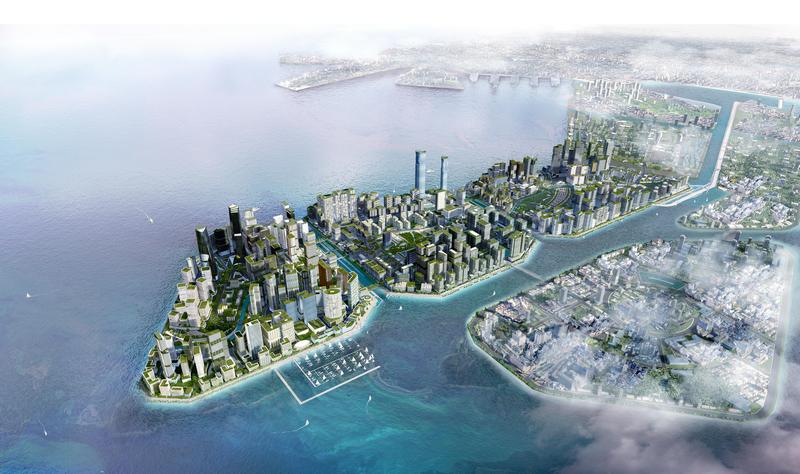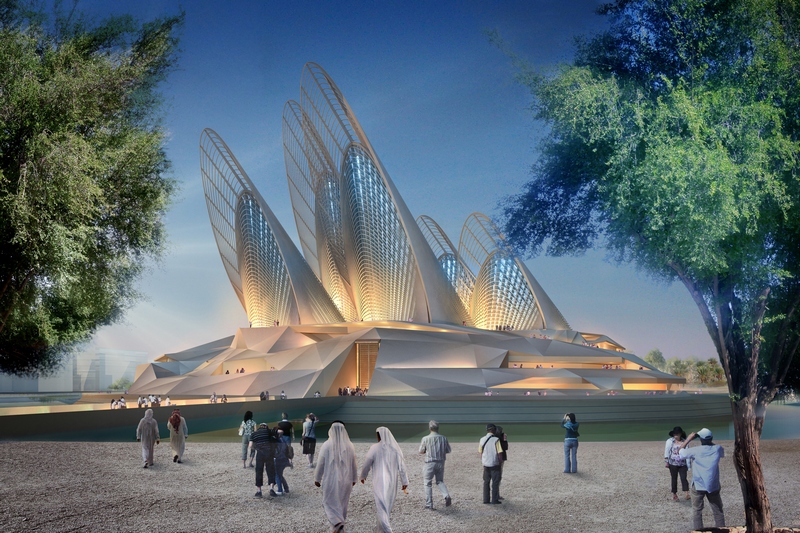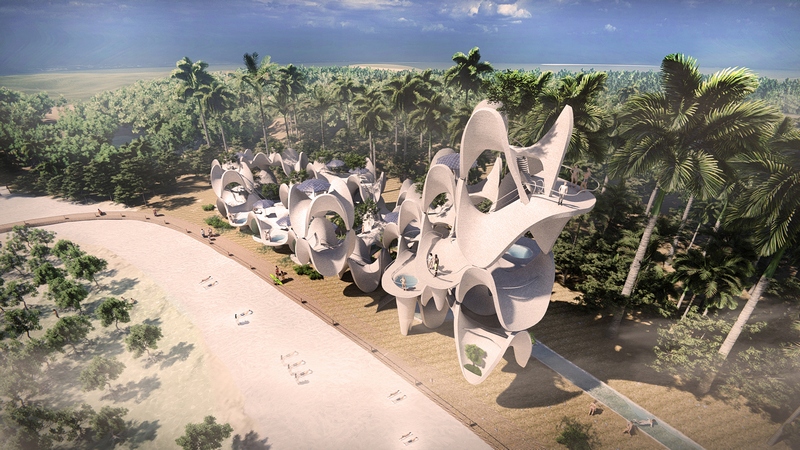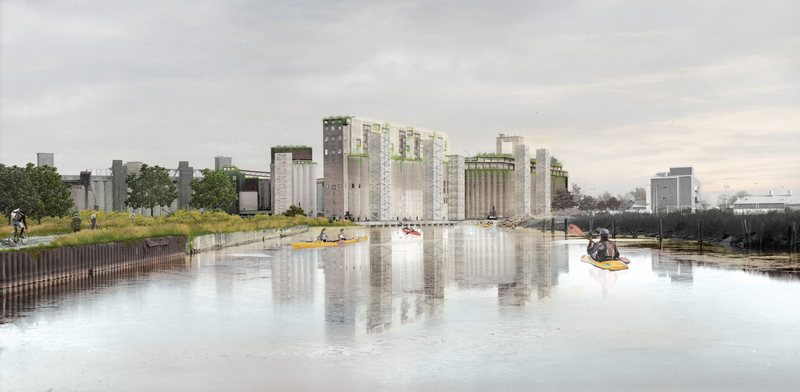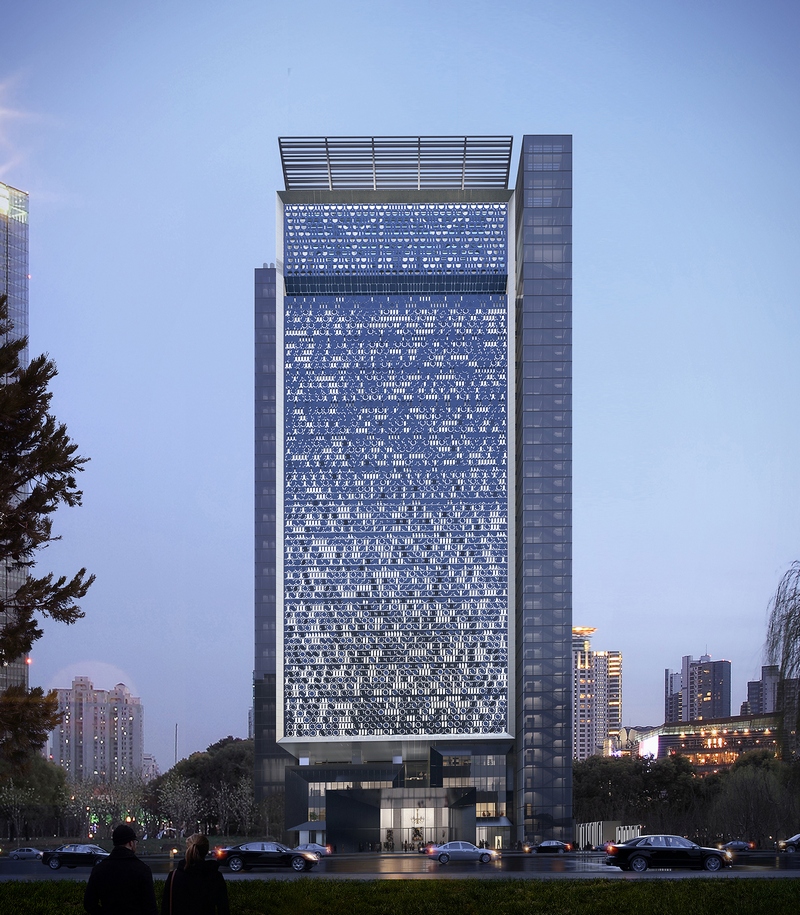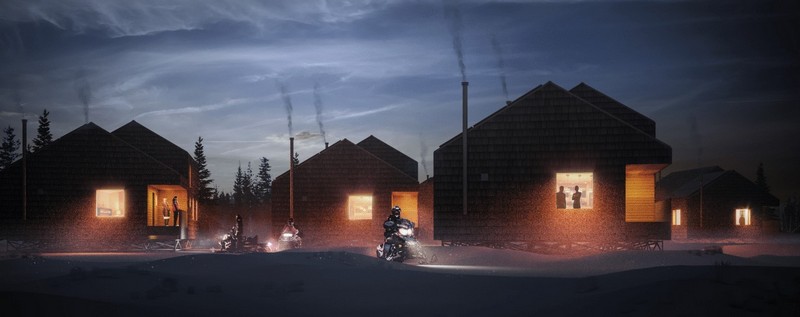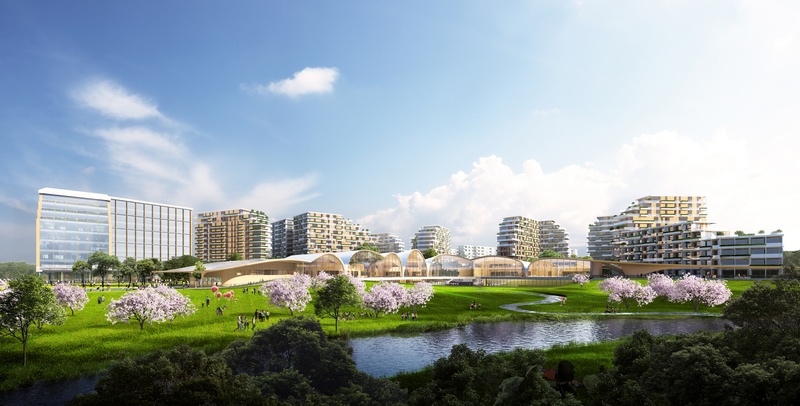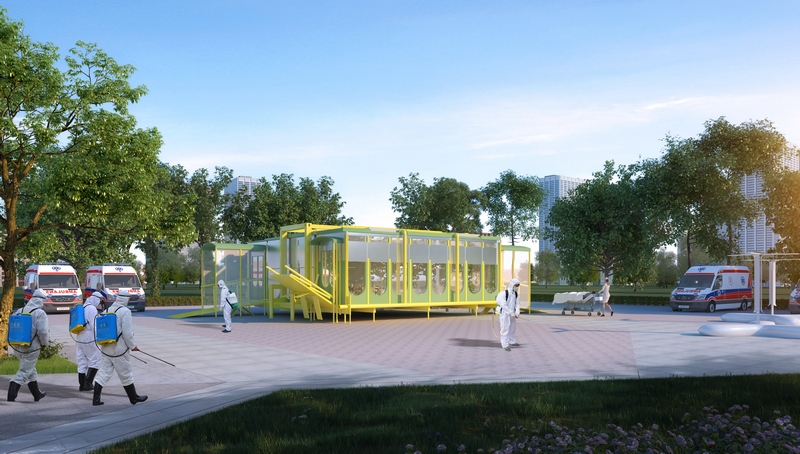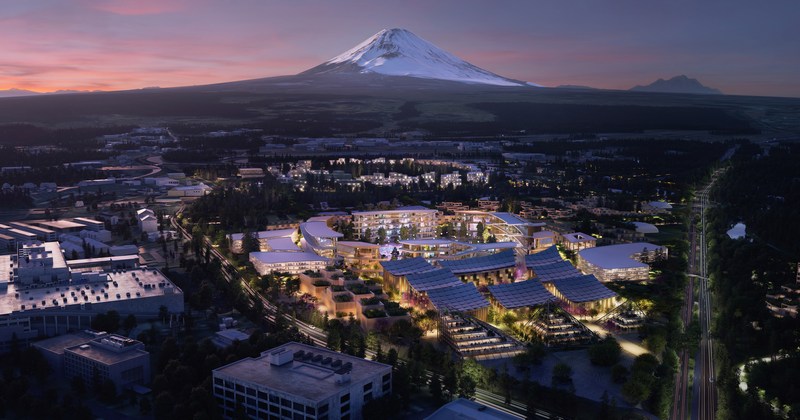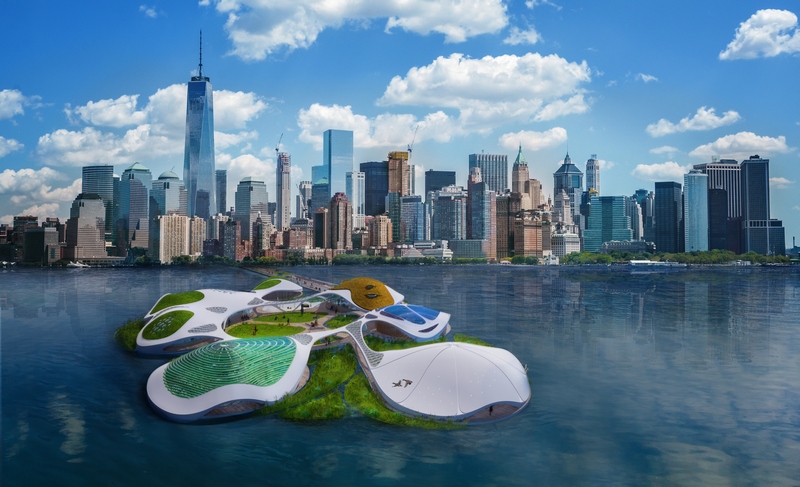
Twelve big-picture architectural initiatives addressing some of the world’s most pressing challenges have won the first of this year’s World Architecture Festival (WAF) Awards. The 2021 WAFX Awards celebrate project proposals from across the world tackling today’s global issues, ranging from pandemic control and the climate emergency, to social equity, cultural identity, aging populations, and food supply.
The WAFX Award winners are all selected from entries to the Future Projects category in the WAF Awards Programme, for their ambition and scope. This year’s category winners include a fast installation modular hospital for epidemic prevention, a floating eco-campus off Manhattan island, a grand prototype smart transportation city from Bjarke Ingles and Toyota, a zero-carbon office development in central London, the world’s first high-rise data centre in Shanghai, and a new eco-tourism typology at Cagbalete Island, Philippines.
Live interviews with the 12 WAFX Awards winners will take place at WAF Futures, a free-to-view virtual event taking place from 12-14 July 2021, sponsored by GROHE. After presenting their project each winner will be in conversation with a specially selected guest, a studio panel including: esteemed architect Alison Brooks; Founding Partner of Ash Sakula Architects Cany Ash; Head of Architecture at Royal Academy Vicky Richardson, and more. The overall WAFX winner will be announced at the 2021 World Architecture Festival which returns this year as a physical event, taking place in Lisbon for the first time, from 1-3December.
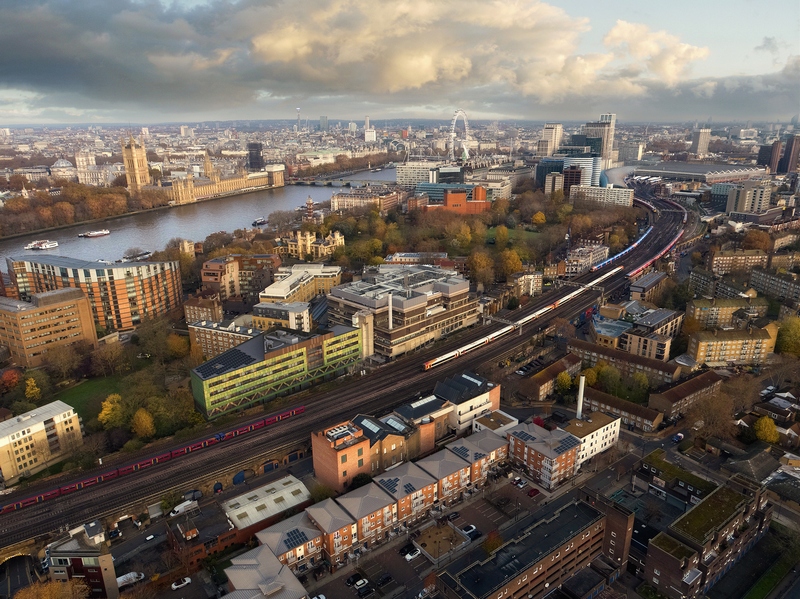
Paul Finch, Director of the World Architecture Festival, comments: ‘This year’s WAFX winners feature an inspiring set of ideas and approaches in respect of many of the major issues of our time. From all-wood offices to conceptual projects combining nature with the man-made, architects have once again shown how design can be deployed to tackle challenges and investigate opportunities.’
The shortlist of the WAF Future Projects Award supported by ABB, also announced today, will also be under discussion at WAF Futures, at a session on 12 July with WAF Director Paul Finch, WAF Curator Jeremy Melvin, and members of the guest studio panel. Representatives of over 180 finalist projects from 40 countries will go on to compete live in front of a judging panel at WAF in December to decide the winner of each of the Future Project categories, ranging from Office, Residential, Education and Health to Culture, Leisure and Experimental. The overall best future project will also be judged and announced at the Lisbon event. Competing practices include Eric Parry Architects, SHoP, WilkinsonEyre, Bates Smart and AHMM.
To register for a free WAF Future event ticket please visit: www.worldarchitecturefestival.com/wafutures-registration. The event runs in conjunction with WasteBuild, an event for the international construction industry dedicated to the new circular built environment, which takes place on the same virtual platform from 15-16 July.
The WAFX 2021 Category Prize Winners are:
Ageing winner: ‘Taikang Community Gui Garden’ by Sunlay
This design concept originates from the local natural landscape and culture of the Guangxi region, China, known for its mountainous terrain, rivers and stunning rice terraces. It uses modern design techniques to reinterpret the landscape of picturesque villages, to create an ideal natural living environment for elderly communities, including residential accommodation, medical care, an activity centre, and support for independent living.
Climate, Energy & Carbon winner: ‘Paradise, London’ by Feilden Clegg Bradley Studios
Paradise will transform a disused site in south London, UK, into 60,000sqft of net carbon zero work and maker space. The landmark timber-framed building will have an exposed cross-laminated timber structure and natural light and ventilation. Designed to be future flexible, and low energy in use, it’s also designed with an easily disassembled structure as part of its end-of-life strategy. The proposal is on target for almost 60 years of a negative carbon footprint.
Construction Technology winner: ‘Museum for Architecture + Residences’ by Sou Fujimoto Architects
The condominium tower, including a museum for architecture, is based on traditional Bahay Kubo huts, reinterpreted in a bamboo grid-like structure, and intertwined with natural fauna to create an evolving vertical forest. The concept-driven design is a vertical extrusion of the rice fields that once covered the project site in Laguna, Philippines.
Cultural Identity winner: ‘Zayed National Museum, Abu Dhabi’ by Department of Culture and Tourism-Abu Dhabi
The UAE’s National Museum, designed by Foster + Partners, tells the story of the late Sheikh Zayed Bin Sultan Al Nahyan, the founding president of the United Arab Emirates, and showcases the country’s history, cultural heritage and recent social and economic transformation. The highly efficient, contemporary form is combined with traditional Arabic design and hospitality.
Digital Technology winner: ‘Shenzhen Qianhai Telecommunication Centre’ by Schneider+Schumacher International GmbH
This telecommunications centre in Shenzhen, China, is destined to become the world’s first high-rise data centre. Its lower floors will relate to the tower’s urban surroundings and the public life of the city, while the top floor will feature a large terrace for IT workers, offering daylight and views of the city and the bay. The lively façade reflects the building’s computational theme and incorporates and interactive elements that move with the wind.
Ethics & Values winner: ‘#WeThePlanet Campus’ by 3deluxe
This mobile, floating green platform off the Manhattan shoreline is designed for convening international summits, workshops and educational programmes which focus on transforming our world for a better future. The fluid, organic design concept responds to the natural elements surrounding it, water, sun and wind, and the biotope is designed to give as much as it takes from nature, while generating its own energy and drinking water.
Food winner: ‘Cagbalete Sand Clusters’ by Carlo Calma Consultancy Inc.
This proposal for a new sustainable eco-tourism typology at Cagbalete Island, Philippines,
is designed to bring an uplift to local farming and fishing industries, including mud crab farming. The mixed-use development is designed to mix farming and leisure, including a farm-to-table restaurant focusing on local plants and produce. It is constructed from a prefabricated unit system inspired by the areas’ corals, made from a membrane of fishing nets, sand and soil.
Health winner: ‘The Deformable Modularized COVID-19 Epidemic Prevention Hospital, Shanghai’ by School of Architecture & Design, China University of Mining and Technology
This fast installation modular hospital is designed as a rapid response solution to large-scale infectious diseases such as SARS and COVID-19. The scheme takes the modular isolation ‘ward’ as the core module, and ‘treatment’, ‘office’, and ‘cleaning’ as auxiliary modules, allowing for the rapid construction of hospitals of different combinations and sizes. The scheme is designed to be easy to store, transport, construct, and adapt when it reaches end of use.
Re-use winner: ‘Silo City’ by STUDIO V Architecture
Silo City is a design vision for the reuse of the largest collection of grain elevators in the world, transforming a 1,000,000 sq. ft site on the Buffalo River, New York, into an arts and cultural campus. Silo City will accommodate both grass roots and internationally renowned institutions and artists, supported by sustainable development including commercial, residential and hospitality that grow out of the themes, architecture, and history of the site.
Smart Cities winner: ‘Toyota Woven City’ by B.I.G. Architecture D.P.C.
Toyota Woven City is the world’s first urban incubator dedicated to the advancement of all aspects of mobility at the foothills of Mount Fuji in Japan. With a primary street optimised for faster, autonomous vehicles, a recreational promenade for micro-mobility types such as bicycles and scooters and a linear park dedicated to pedestrians, flora and fauna, it aims to bring equality to different forms of travel, and create safer, pedestrian-friendly connections.
Social Equity winner: ‘A Resilient Duplex for Fort Severn First Nation’ by Two Row Architect and KPMB Architects
This housing typology is based on close consultation with Fort Severn First Nation, the northernmost community in Ontario, accessible only by air and ice road. The durable, easily transportable construction system is designed to help elders live independently in the community for longer, while also providing units for young families, who often end up living in overcrowded conditions with parents and siblings for lack of other options.
Water winner: ‘Horizon Manila’ by William Ti, Jr. Horizon Manila is a 419-hectare masterplan designed to serve as a new hub for growth and development for the Philippines’ capital. The new district is composed of three islands bisected by a 4km canal park, creating many different waterside neighbourhoods, gardens and urban parks, to allow for a diverse, and permeable urban environment to evolve.
For more details on the 2021 World Architecture Festival and sister event Inside Festival of Interiors please visit www.worldarchitecturefestival.com and www.insidefestival.com.













